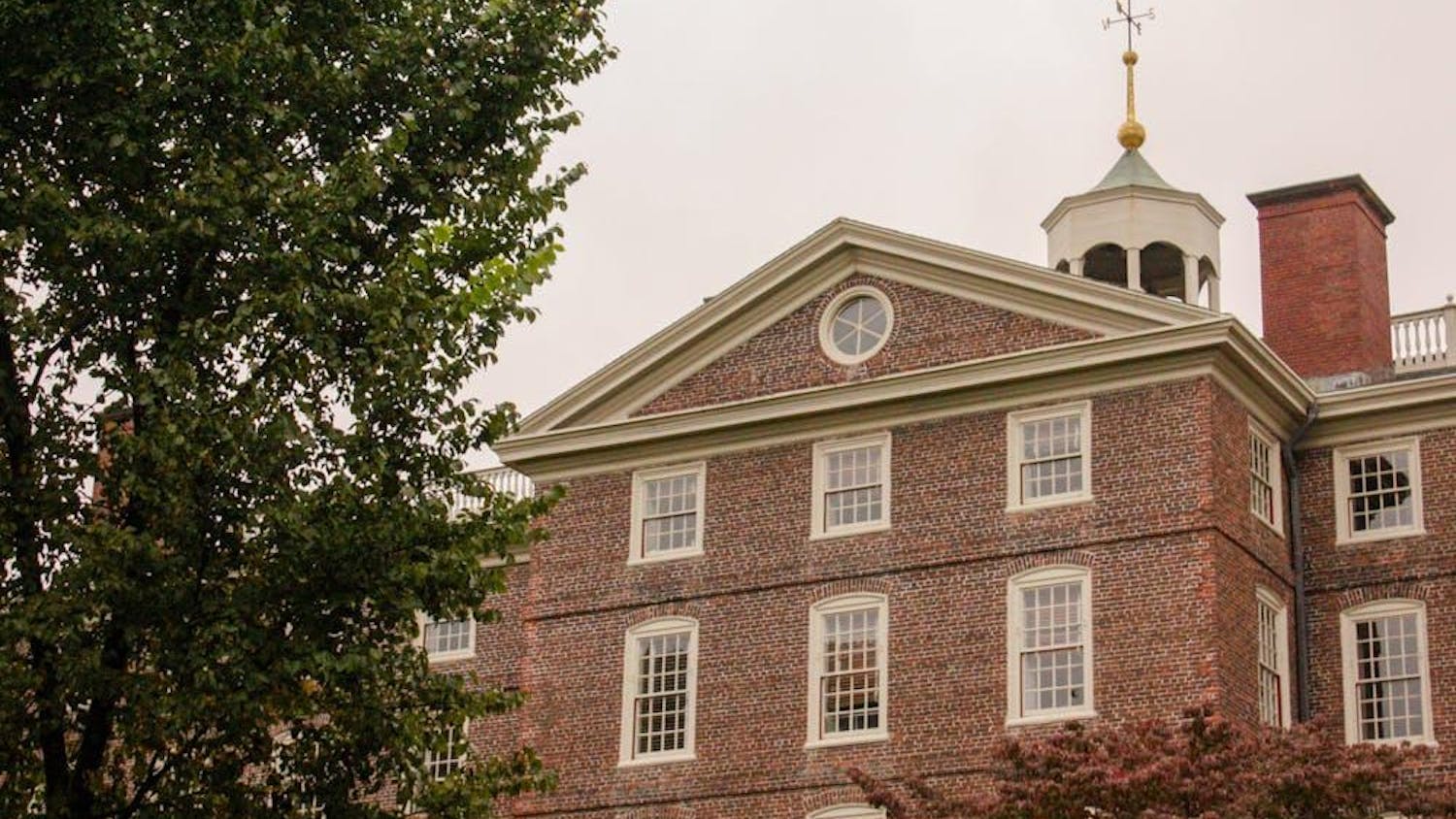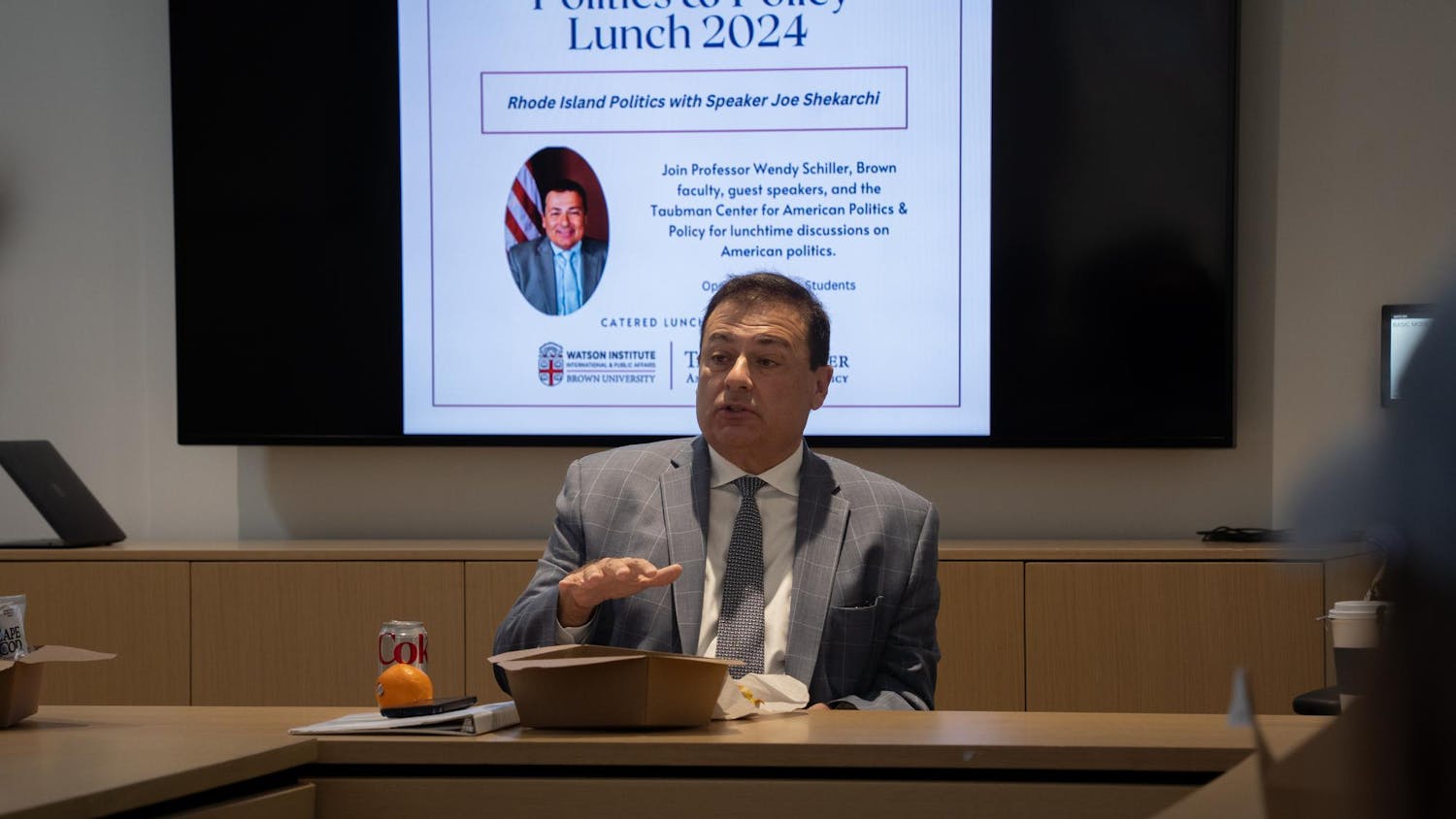Danah Boyd '00, a fellow at Harvard's Berkman Center for Internet and Society and social media researcher at Microsoft Research New England, thinks that social media is evolving into more than just technology.
Boyd spoke Wednesday night to an audience of students, alums and professors in Salomon 101 about social media and its implications for social stratification, privacy and learning. An activist and ethnographer, she began her lecture, "Youth-Generated Culture: Education in an Era of Social Media," by conceptualizing a new generation of social media, or Web 2.0.
Unlike Web 1.0, which was about forming communities based on interests, Web 2.0 is about self-expression "in a field of people who already know you," she said. Facebook is "actually a performance of close and dear friends," she added.
Social media has evolved in a way that "goes beyond what technology was designed for," Boyd said. Youth are able to communicate internationally, connect with celebrities and present themselves as celebrities.
On Twitter, there is "an entire server dedicated to the Bieber problem," she said, referring to the popularity of Justin Bieber on the microblogging site.
Such evolution of online public spaces is "happening at a much greater scale" than in the past, Boyd said, and so "what happens in social media is constantly complicating … boundaries and networks."
This is evident in the way that the Internet is "just as stratified as public space that we know more generally," Boyd said. She discussed her experience with teenagers, who referred to MySpace as "ghetto" when the "cool kids" of their high school moved to Facebook. It was not a matter of choice, but rather a race- and class-related movement, she said.
Teenagers now also find "ways of creating privacy in public" using social media, Boyd said. They use song lyrics online to express their feelings so that only those familiar with the lyrics will know their meaning.
On the "flip side," she said, there is also a challenge to "take the moments of visibility to do good" in recognizing privacy and acting to help those who speak in public spaces.
Lastly, Boyd introduced social media's implication for learning. She asked, "Why demonize Wikipedia?" Wikipedia provides "the opportunity of pulling knowledge together and also debating," Boyd said, by openly showing the process of how the information is accumulated.
She referred to a Wikipedia discussion page on the American Revolution, where people take on British or American perspectives in actively debating over the question of "patriots or terrorists." This process is a "perfect opportunity to learn about media literacy," Boyd said.
"What we're seeing is radical reworking of public spaces," she said.
Social media is a new form of public life that should not be feared, Boyd said. Instead, it is something we should "embrace and make sense of," she said. It is something to be explored, like public space and college, she added.
Professor of Computer Science Andy van Dam, who gave an introduction before the lecture and taught Boyd when she was an undergraduate at Brown, said it was a "lovely lecture" that felt like a performance that was "very effective in getting the message out."
Many students in the audience said they found the lecture very interesting and unexpected.
"I did not expect (social media) to be close to social dynamics and structural divisions," said Alex Feldman '11.
Jenna Zeigen '12 said the lecture suggested "a whole new direction" for educating youth through social media.




